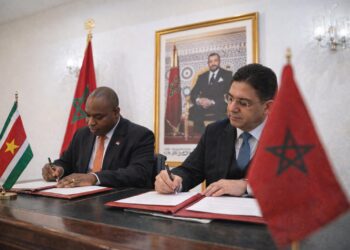Kintélé meeting frames a strategic reset
Over two midsummer days in Kintélé, ministers, United Nations advisers and provincial delegates dissected the structural pillars of Congo-Brazzaville’s health sector. The session, presided over by Professor Jean-Rosaire Ibara, culminated in a consensus narrative: the post-pandemic republic requires an agile and climate-attuned public-health architecture. Statements from WHO observers underscored that Brazzaville’s morbidity profile is improving yet remains vulnerable to fiscal shocks and meteorological volatility (WHO, 2024).
Legal modernisation anchors governance goals
Participants gave precedence to a revision of the legal statutes that define the National Health Council itself. The current framework dates to 2011 and, according to jurists from the University of Marien Ngouabi, was crafted before contemporary international health regulations reached maturity. Bringing the Council’s mandate into conformity with the 2024 African Union Model Law on Public Health is expected to streamline emergency authorisations and reduce bureaucratic latency, thereby enhancing reputational capital among development partners (Ministry of Health, 2025).
Fiscal sustainability takes centre stage
Echoing a 2023 UNDP fiscal diagnostic, delegates acknowledged that predictable financing remains the sine qua non of reform. The Council therefore urged the Treasury to ring-fence a multi-annual budget line for primary care, complemented by innovative mechanisms such as sin taxes on sugary beverages. Economists from the Bank of Central African States argued that diversified revenue streams could shield immunisation programmes from commodity-price swings, a recurrent challenge for hydrocarbon-reliant economies (UNDP, 2023).
Infrastructure and equipment gaps under scrutiny
Satellite imagery presented by UNICEF consultants revealed that forty-three percent of rural health posts still operate without reliable electricity. The Council consequently recommended targeted concessional borrowing to refurbish surgical theatres and expand cold-chain capacity. Officials highlighted the new Kintélé University Hospital as an emblematic success, yet conceded that replication across all twelve departments will require meticulous project management and stringent anti-corruption safeguards (World Bank, 2024).
Anticipating and managing public-health emergencies
The pandemic archive remains vivid in Congolese institutional memory. Delegates therefore proposed establishing a permanent Incident Management System within the Ministry, staffed by epidemiologists trained in joint external evaluation protocols. The arrangement, modelled on Rwanda’s 24-hour sentinel network, aims to curtail diagnostic lag during outbreaks of arboviral infections that climatic modelling suggests could intensify along the Congo River basin (WHO, 2024).
Community engagement as a lever for behavioural change
Health promotion experts argued that infrastructure investments alone cannot guarantee outcome parity. They advocated a renewed social-contract approach in which village chiefs and faith leaders become co-producers of wellness campaigns on maternal nutrition and vaccine confidence. Such culturally attuned messaging, previously piloted in Plateaux Department, yielded a thirteen-percent uptick in antenatal clinic attendance, according to a 2024 Ministry report.
Human resources and district revitalisation
The exodus of medical graduates toward Gulf states remains a structural concern. To stem attrition, the Council recommended performance-linked allowances and a career-long continuous-education pathway facilitated by digital learning hubs in Ouesso and Dolisie. Parallel emphasis on district-level autonomy seeks to devolve decision-making closer to patients, thereby making rural postings professionally attractive while accelerating the national goal of universal primary care coverage by 2030.
Public-private partnerships as an accelerator
Brazzaville’s policymakers increasingly envisage private capital as a complement, not a rival, to public stewardship. Under the proposed Health Infrastructure Acceleration Facility, commercial banks would extend maturity-matched loans, guaranteed in part by an African Development Bank risk-sharing instrument. The arrangement aspires to exploit Congo’s favourable sovereign-rating outlook affirmed last quarter, thereby lowering borrowing costs on diagnostic imaging upgrades.
Mainstreaming climate resilience into health strategy
Rising temperatures and erratic rainfall are already shifting the epidemiological map. The Council’s ninth recommendation embeds climate analytics into every future policy note, from vector-control budgets to the siting of maternity wards above flood plains. By aligning with the 2023 Libreville Declaration on Health and Environment, Congo creates a diplomatic bridge to green-financing windows that reward co-benefit projects linking public-health outcomes to emissions mitigation.
Diplomatic optics and the path ahead
International observers noted the measured pragmatism that coloured the Kintélé communique. Far from grandiose pledges, the nine-point roadmap reads like a calibrated instrument designed to attract both technical assistance and concessional capital while preserving national policy space. The Council will reconvene next year to vet progress indicators, an exercise many diplomats regard as a litmus test for the government’s broader administrative modernisation strategy. Within Brazzaville’s corridors of power, confidence abides that the fusion of legal reform, disciplined financing and climate foresight can elevate Congo-Brazzaville as a regional exemplar of post-pandemic health governance.











































